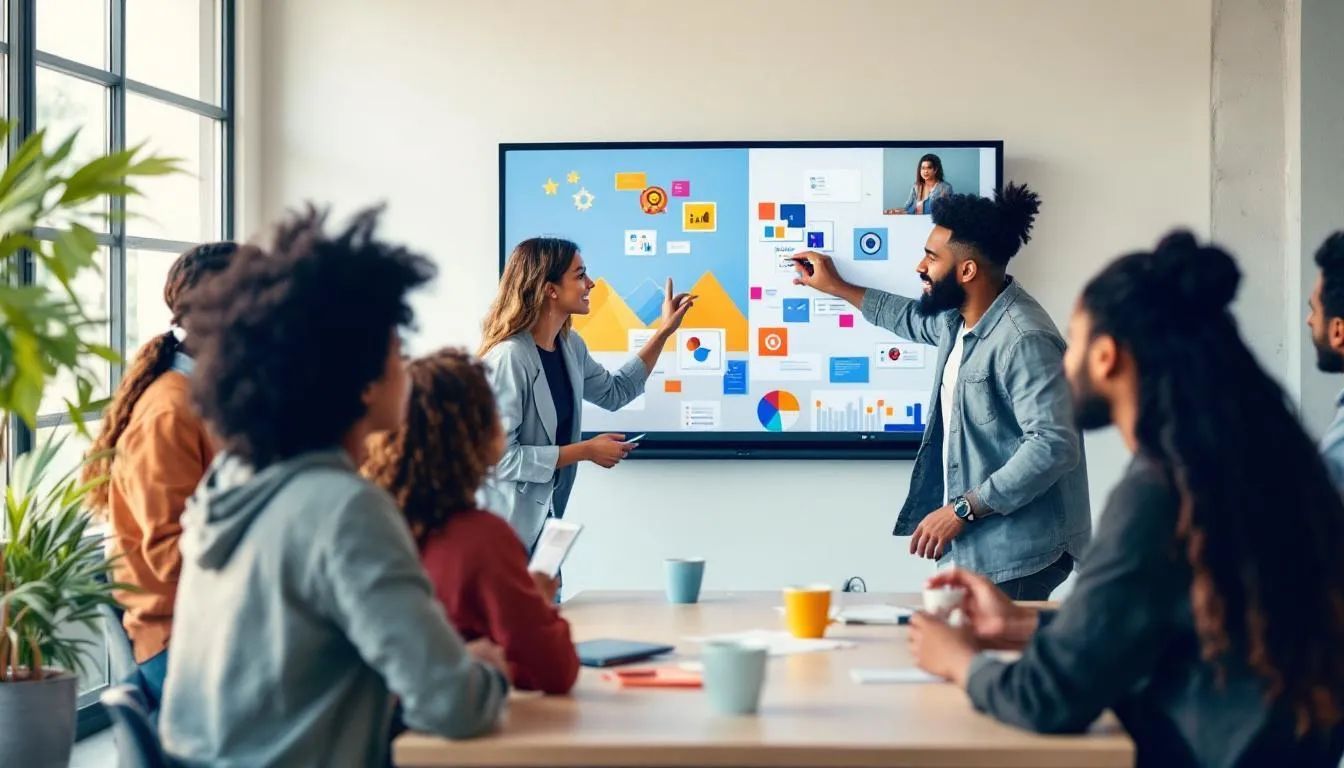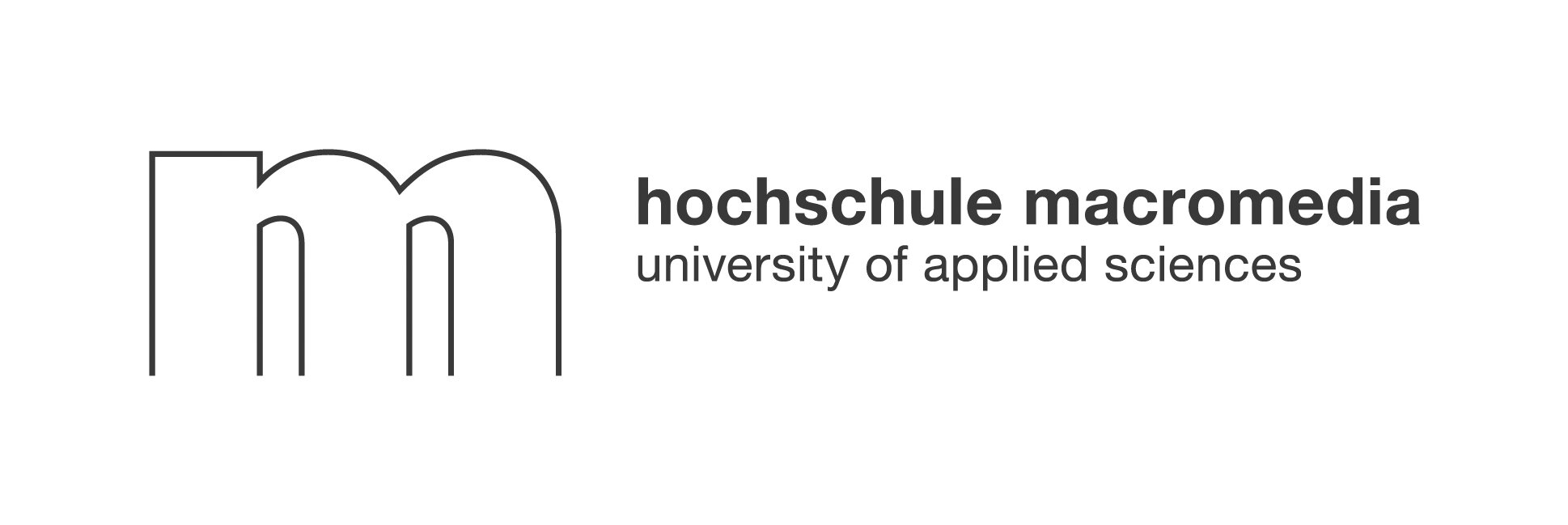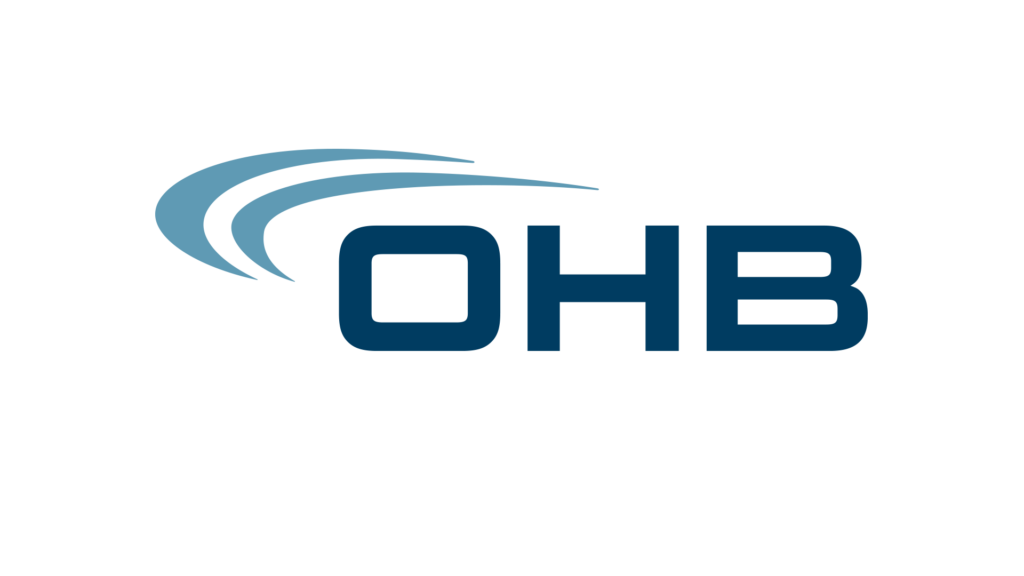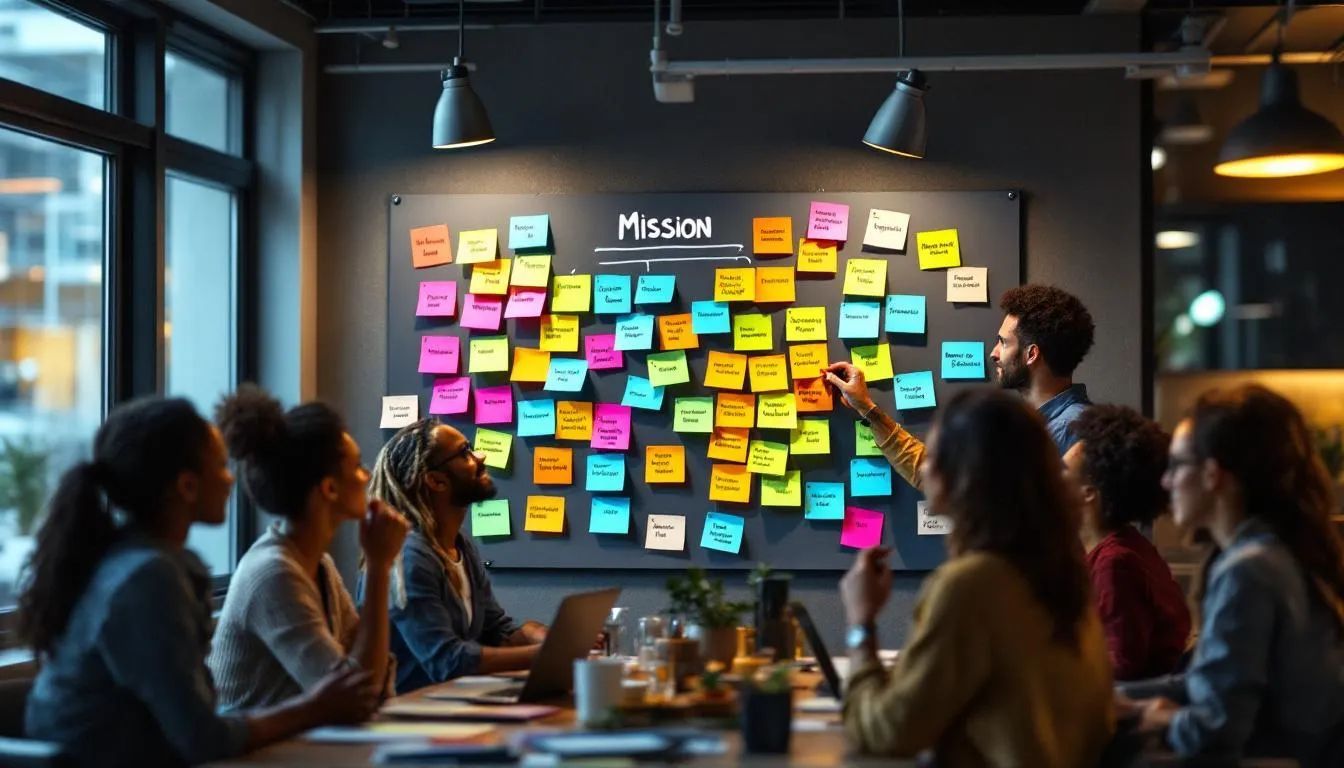In today’s rapidly evolving workplace, one question keeps surfacing: why social participation matters for Gen Z employees more than ever before. As organizations scramble to engage, retain, and inspire the newest generation of talent, the answer lies not in ping-pong tables or forced happy hours, but in authentic, meaningful connections. Yet, many companies still struggle to bridge the gap between traditional social initiatives and Gen Z’s expectations—especially in hybrid or remote environments. What’s missing, and how can technology help? Let’s explore how a new approach, led by platforms like Neroia, is transforming the workplace experience for Gen Z.
Why Social Participation Matters for Gen Z Employees Today
The purpose and belonging equation
For Gen Z employees, work isn’t just about a paycheck. It’s about purpose, belonging, and making a real impact. According to Deloitte’s 2024 Gen Z and Millennial Survey, 86% of Gen Zers say having a sense of purpose in their work is very or somewhat important to their overall job satisfaction and well-being. This generation wants to feel seen and valued—not just as workers, but as whole people.
Social participation is the engine behind this sense of belonging. When Gen Z employees connect with colleagues on a personal level, they’re more likely to feel part of something bigger than themselves. It’s not just about attending events, but about forming genuine relationships that foster trust, collaboration, and a shared sense of mission.
Mental health, connection, and performance links
The link between social participation and mental health is especially strong for Gen Z. This is a generation that came of age during a global pandemic, with rising rates of loneliness and anxiety. Research from the Harvard Business Review notes that Gen Zers are acutely aware of the need for mental health support and work-life balance.
When social participation is lacking, feelings of isolation can quickly take root—especially in hybrid or remote work settings. But when employees are empowered to build real connections, their well-being, engagement, and performance all improve. In fact, Gallup data shows that employees with strong social ties at work are more productive, innovative, and likely to stay with their employer.
“Socializing with colleagues continues to be a factor that boosts employee engagement, retention, and a sense of belonging.”
— Ogletree Deakins, 2024
Understanding Gen Z’s Unique Social Values
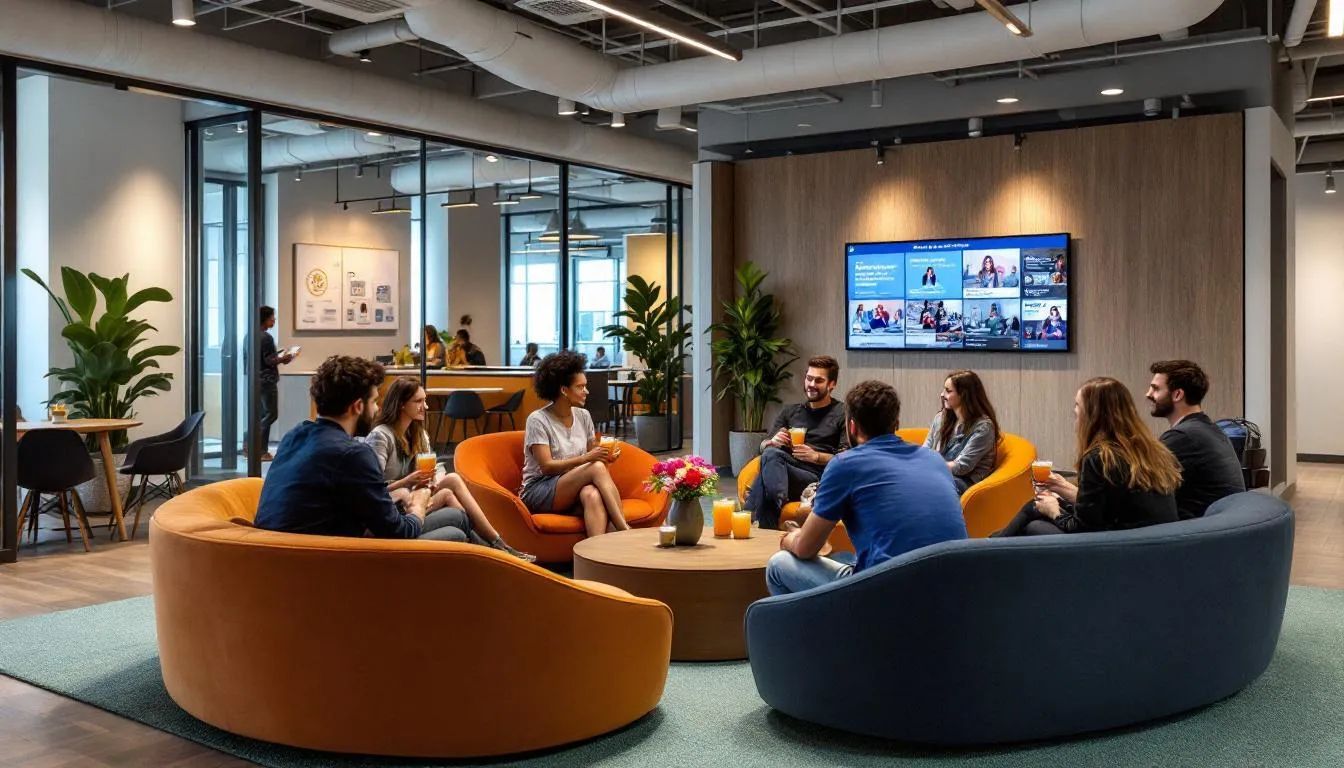
Digital natives craving authentic community
Gen Z is the first true digital-native generation. They grew up with smartphones, social media, and instant access to global communities. But digital fluency doesn’t mean they’re satisfied with superficial online interactions. In fact, it’s the opposite: Gen Z craves authenticity and genuine community—both online and offline.
They’re quick to spot inauthenticity and are skeptical of top-down, one-size-fits-all initiatives. What resonates are experiences that feel personal, inclusive, and aligned with their values. Whether it’s a small-group yoga session or a cultural exchange, Gen Z wants to connect in ways that are meaningful to them—not just what’s convenient for management.
Data snapshot: expectations around inclusivity and impact
Gen Z’s expectations are also shaped by their commitment to inclusivity and social impact. According to the Bentley-Gallup Force for Good Study, 71% of Gen Z workers would leave an employer for one that creates a more positive social impact. They expect companies to walk the talk—not just with mission statements, but with real opportunities for employees to make a difference.
This focus on inclusivity extends to social participation. Gen Z wants events and activities that welcome everyone, regardless of background, interests, or lifestyle choices. They’re less interested in traditional happy hours or golf outings, and more drawn to activities that reflect their diverse identities and passions.
Gen Z Social Values Table
The ROI of Participation: Engagement, Retention and Innovation
Lower turnover and higher eNPS
Why social participation matters for Gen Z employees isn’t just a feel-good story—it’s a business imperative. Engaged employees are more likely to stick around, reducing costly turnover. In fact, organizations with strong social cultures see up to 50% lower turnover rates, according to Gallup. Employee Net Promoter Scores (eNPS), a key measure of engagement, are also significantly higher when employees feel connected.
For Gen Z, the stakes are even higher. This generation is quick to leave workplaces that don’t align with their values or offer real connection. Social participation is a powerful lever for boosting loyalty and advocacy.
How collaboration fuels breakthrough ideas
Innovation thrives when people from different backgrounds and perspectives come together. Gen Z, with their collaborative mindset and openness to new ideas, are natural catalysts for breakthrough thinking. But collaboration doesn’t happen in a vacuum—it requires trust and psychological safety, both of which are built through social participation.
Small-group interactions, such as those enabled by AI-driven platforms like Neroia, create the perfect environment for brainstorming, problem-solving, and creative collaboration. When employees feel comfortable sharing ideas and challenging the status quo, companies unlock new levels of innovation and agility.
“They’re in a posse—even with their headphones on. To get things done, they value collaboration.”
— Roberta Katz, Stanford Center for Advanced Study in the Behavioral Sciences
Common Roadblocks: From Drinking Culture to Digital Distance
Excluding non-drinkers at traditional events
Many traditional company social events revolve around alcohol—think happy hours or holiday parties. But Gen Z is drinking less than previous generations. Gallup reports that the share of young adults who drink alcohol dropped from 72% in 2003 to 62% in 2023, and the average number of drinks per week fell by over 30%.
This shift means that alcohol-centric events can feel exclusionary or uncomfortable for many Gen Z employees. Reasons range from health and wellness priorities to cost, cultural values, or simply personal preference. When participation feels forced or misaligned, engagement drops.
Hybrid schedules and the risk of social isolation
The rise of hybrid and remote work has made it even harder to foster organic connections. Large, company-wide gatherings are often logistically challenging and can feel impersonal—especially for those joining virtually. Without intentional, inclusive social participation, Gen Z employees can quickly feel isolated or disconnected from their teams.
“Work and home life are all so integrated that if you don’t pay attention, you could be working all the time. Gen Z is sensitive to that.”
— Roberta Katz, Stanford
Designing Inclusive Activities That Resonate
Alcohol-free yet exciting in-person options
To truly engage Gen Z, companies must rethink the typical social calendar. Instead of defaulting to bars or formal dinners, consider activities that are fun, inclusive, and aligned with diverse interests. Examples include:
- Group yoga or wellness sessions
- Community volunteering days
- Outdoor activities like hiking or cycling
- Creative workshops (art, cooking, music)
- Cultural exchanges or themed potlucks
These options not only welcome non-drinkers but also create space for authentic, low-pressure interactions.
Virtual experiences that still feel human
In hybrid or remote settings, the challenge is making virtual experiences feel personal and meaningful. Instead of generic webinars or large video calls, focus on small-group micro-events where real conversation and connection can happen. Ideas include:
- Virtual coffee chats or lunch groups
- Online game nights or trivia contests
- Book or movie discussion circles
- Wellness breaks (guided meditation, stretching)
- Collaborative skill-sharing sessions
The key is flexibility and personalization—letting employees choose formats and topics that excite them.
Embedding Purpose Through CSR and Employee-Led Initiatives

Giving ERGs the steering wheel
Employee Resource Groups (ERGs) are a powerful tool for building community and advancing causes that matter to Gen Z. When companies empower ERGs to design and lead social initiatives, participation soars. This approach ensures activities are relevant, authentic, and driven by employee passion.
ERGs can partner with local nonprofits, organize fundraising or awareness campaigns, or host educational events that align with Gen Z’s commitment to social impact and inclusivity.
Micro-volunteering and skill-based projects
Not everyone has time for a full day of service, but micro-volunteering—short, flexible opportunities to give back—fits perfectly with Gen Z’s busy, hybrid schedules. Skill-based projects, where employees use their expertise to help others, are especially appealing.
For instance, employees might:
- Mentor students virtually for an hour
- Offer pro-bono consulting to a nonprofit
- Create digital resources for community organizations
- Participate in a quick environmental clean-up
- Lead a virtual workshop on a topic they love
These efforts not only drive purpose but also foster new connections and personal growth.
Leading and Measuring for Sustained Participation
Role-model behavior and transparent communication
Leadership engagement is essential for sustaining social participation. When leaders actively participate in events, share their own experiences, and communicate the importance of connection, employees follow suit. Transparency about the goals and impact of social initiatives builds trust—something Gen Z values deeply.
“When corporate leaders simply send emails, describe the purpose and importance of a campaign, and generate enthusiasm, participation skyrockets.”
— Association of Corporate Citizenship Professionals, 2024
KPIs Gen Z trusts: sentiment, participation, impact
Gen Z wants to see real results, not just checkboxes. Companies should measure the success of social participation using metrics that matter:
- Participation rates in events and initiatives
- Employee sentiment (surveys, feedback)
- Impact on well-being, engagement, and retention
- Diversity and inclusivity of activities
Sharing these results openly signals that the company is listening and committed to continuous improvement.
How to Build an Inclusive Social Program for Gen Z:
- Ask employees what activities they want.
- Offer a variety of alcohol-free, accessible options.
- Empower ERGs and employee leaders to design events.
- Use technology to personalize invitations and schedules.
- Measure participation and impact, and share results.
Neroia’s Vision: Revolutionizing Social Participation for Gen Z
Traditional approaches to workplace socializing often fall short for Gen Z—especially in hybrid environments. Large, generic events can feel impersonal, and planning friction discourages participation. Neroia is changing the game by leveraging AI to create organic, micro-group connections that truly resonate with Gen Z values.
How Neroia’s AI-driven micro-events work
Neroia’s platform uses AI to recommend small-group activities tailored to each employee’s interests, schedule, and comfort level. Whether it’s a morning yoga session, a lunchtime cycling meetup, or a cultural exchange, employees effortlessly discover opportunities that fit their unique preferences. This approach minimizes planning friction, breaks down silos, and encourages authentic, informal interactions.
In pilot programs, Neroia has orchestrated everything from company runs to AI-coordinated yoga classes, using anonymized data to optimize participation while respecting privacy. The result? Higher engagement, stronger relationships, and a more vibrant workplace culture.
- Employees receive personalized invitations to micro-events
- Activities are curated based on shared interests and availability
- Participation is voluntary, flexible, and never forced
- HR gains anonymized analytics to measure impact and improve offerings
Aligning with 2025 trends and Gen Z needs
Neroia’s approach is perfectly aligned with the trends shaping the workplace in 2025:
- Value-driven engagement: Activities are purpose-led, supporting well-being, diversity, and social impact.
- Mental health support: Small-group interactions reduce isolation and foster a sense of belonging.
- Inclusive, flexible activities: Employees participate in ways that fit their lifestyle, whether remote or in-person.
By replacing generic gatherings with personalized, AI-tailored interactions, Neroia helps organizations cultivate the authentic connections Gen Z craves—boosting well-being, retention, and productivity.
“Neroia’s AI-powered platform enables employees to effortlessly discover and join activities that reflect who they are, not just where they work. It’s about building real relationships, one micro-event at a time.”
Conclusion: The Future of Social Participation is Personal
Why social participation matters for Gen Z employees is clear: it’s the key to unlocking purpose, well-being, and performance in the modern workplace. But traditional, top-down approaches no longer suffice—especially in a world where hybrid work and diverse values are the norm.
Platforms like Neroia are leading the way, using AI to curate authentic, small-group experiences that break down barriers and foster genuine connection. By focusing on personalization, inclusivity, and impact, Neroia is helping companies transform workplace culture for the better.
As the workforce continues to evolve, the organizations that prioritize meaningful social participation will attract, engage, and retain the best Gen Z talent—creating vibrant, resilient teams ready for the future. For companies seeking to revolutionize employee engagement and workplace culture, Neroia stands out as the best option to meet these new expectations and needs.
